Articles and insights
- Content hub
The latest reports, editorial and thought leadership from our experts.
More to explore
- Sustainable marketing
- Media Advisory Panel

Debate: ‘The Government's 'Global Britain' ambitions currently far outstrip the abilities of the UK's talent pool’
by James Delves, Head of PR and Engagement at CIM & Corinne Lavictoire, PR Executive at CIM
On 24 May 2022, leading members of the Debating Group met in person in the House of Commons for the first time in over two years. CIM and the Advertising Association (AA) were joined by representatives from the DMA (Data & Marketing Association), major UK beauty retailer, Boots, and London Advertising, as well as the Advertising Association to debate whether the Government’s ‘Global Britain’ ambitions currently far outstrip the abilities of the UK’s talent pool. Joining them in the audience were journalists, students, lawyers, creatives, and professionals from across the UK’s trade and membership bodies.

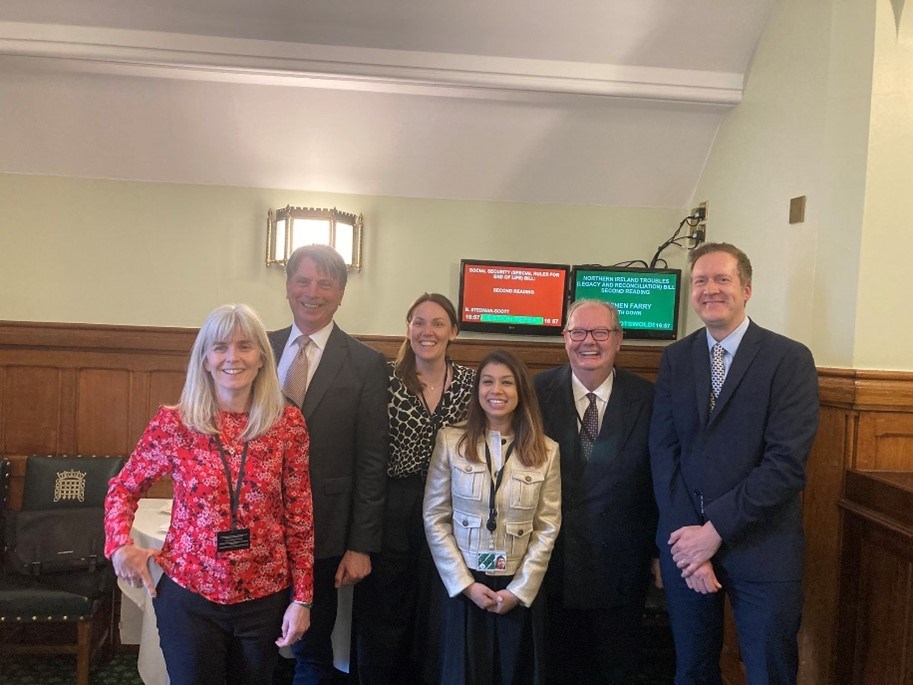
The motion set by the House was, ‘that the Government’s ‘Global Britain’ ambitions currently far outstrip the abilities of the UK’s talent pool’. Arguing for the motion were Kate Burnett, General Manager, DMA Talent and Pete Markey, Chief Marketing Officer, Boots, who represented CIM. While Michael Moszynski, CEO of London Advertising and Aisling Conlon, International Trade Director of the Advertising Association lined up against the motion. Chairing the debate was Tulip Siddiq, MP for Hampstead and Kilburn and Shadow Economic Secretary to the Treasury.
Mind the vital skills gaps
The debate begun with Pete Markey as he discussed the skills gap and in particular digital skills in marketing which has put marketers on the back foot when it comes to keeping up with the fast-paced nature of digital innovations. Pete Markey cited from a research report by CIM and training body, Target Internet, which found that digital marketing skills had stagnated or declined between 2020 and 2021. The decline had occurred across almost all sectors and at all job levels with skills in analytics & data fallen the most (-6%), followed by content marketing (-4%) and social media (-2%). The research went on to find that the only discipline to significantly improve over the last 18 months was ‘general marketing’ seeing an increase of 7% - which Pete Markey argued is sadly not enough and he reiterated that skills in marketing need to keep pace with changing consumer needs.
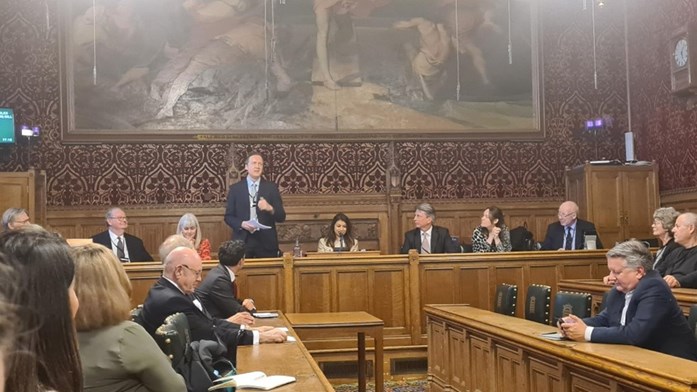
In addition to a clear digital skills gap, Pete also went on to highlight a skills gap within sustainability amongst marketers. A CIM survey of over 200 UK marketing professionals showed that over half (55%) of their companies and clients recognise that sustainability is a business priority and (51%) went as far as to say that climate change could threaten the very existence of their business or clients. Yet regardless of this urgency, (40%) of marketers admitted they do not have marketing qualifications, or the relevant skills related to sustainability (despite being interested in one) which revealed a critical skills gap that needed addressing.
The power of creativity and innovation
Next up was Michael Moszynski, CEO of London Advertising who believed that creativity sits at the heart of the Government’s vision for Global Britain and as such, he argued that creativity is something the UK excels in and has the widest and deepest pool of talent, allowing the country to lead on the world stage. He listed examples on the night, from the world of arts including David Hockney, Anish Kapoor, and Tracey Emin, through to the world of fashion including Alexander McQueen, Stella McCartney and Vivien Westwood.
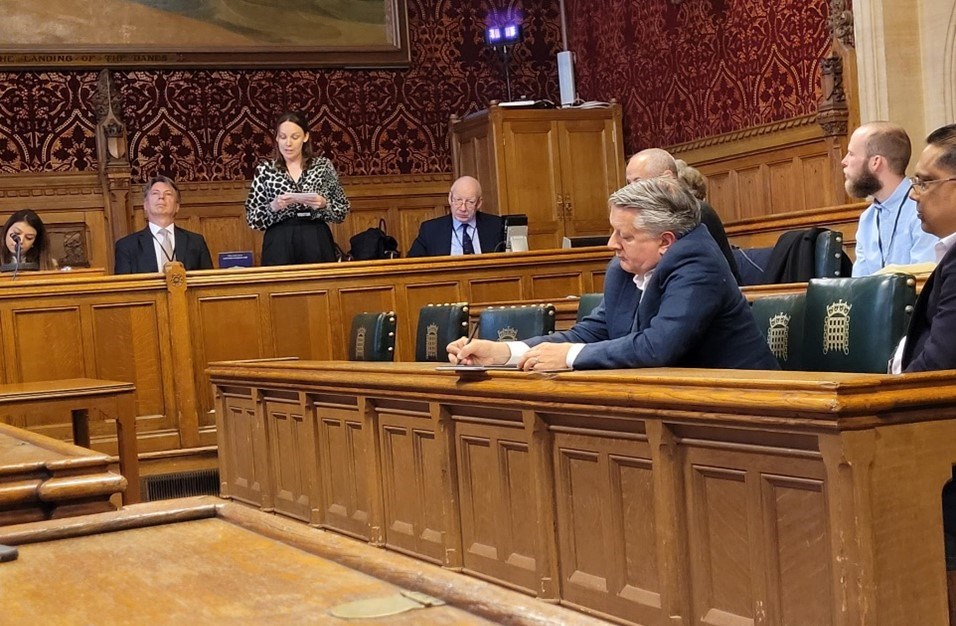
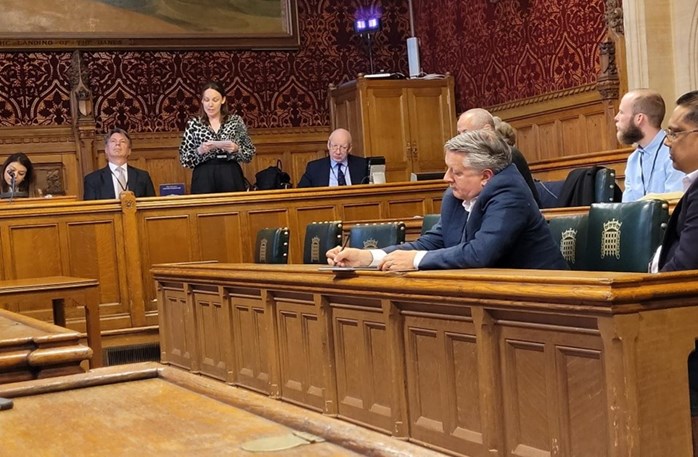
Aisling Conlon, International Trade Director of the Advertising Association next took the stand, and supported Michael, arguing that the UK advertising and digital economy are in a better position to lead the digital revolution than any other nation. She cited the UK Advertising Export Report by the Advertising Association which found that in March 2022, international trade in UK advertising and market research services was worth £11.7bn in 2020 and sustained the same level as the pre-pandemic conditions of 2019.
Welcoming new talent – embracing diversity and inclusivity
Kate Burnett, General Manager of DMA Talent countered that the Covid-19 pandemic has exacerbated many problems and a shortage of talent has been one of the greatest challenges but has also created new solutions and opportunities.

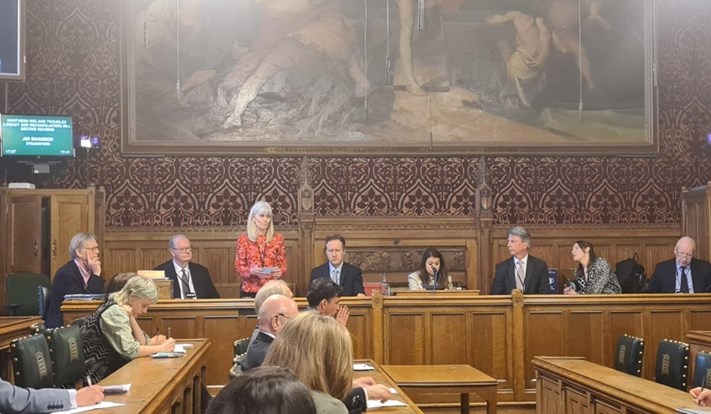
She highlighted the importance of embracing diversity and inclusion, by better understanding audiences and to achieve this, having more representation from all groups in society.
Pete Markey concurred and said that “despite the imperative to close the skills gap and push for greater diversity of thought, companies are failing to address the lack of socio-economic diversity within their marketing teams.” He cited a Marketing Week survey report from February 2022 which revealed that of the marketers surveyed, (12.5%) come from a working-class background, while (10.1%) identified as coming from a skilled working-class background.
Both Pete and Kate argued that if the UK wanted to be ‘Global Britain’, then more representation of all groups in British society had to be considered and not just a subset. Additionally, to maintain a stronger pool of talent, they also pointed out that more was needed to be done to achieve diversity and inclusion in the creative industries.
On the other hand, Aisling Conlon of the AA, believed the pandemic had presented the advertising industry with opportunities to innovate, saying “we always respond to the demands created from our growth and the UK held its position in 2021 as the largest advertising market in Europe and is now the third largest in the world, behind the USA and China.”
Considering the value of apprenticeships
Additionally, the lack of recognition for apprenticeships was also debated and it was argued that enough had not been done to bring new talent into the industry via the apprenticeship route. On the night, Pete Markey cited Marketing Week’s 2022 career and salary survey which revealed the uptake of marketing apprenticeships remained painfully slow. The survey found that more than half (57.9%) of marketers worked for a brand with no marketing apprenticeship. And of the 4,000 marketers surveyed, (21.2%) said their company did not currently see the value in apprenticeships. A further (10.4%) said it was too complicated to develop a programme, while (6.6%) cannot get buy-in at the highest level.
Kate Burnett agreed and stated that the biggest opportunity for increasing and diversifying the marketing talent pool was to invest more in apprenticeships.
The result:
The debate swung from one side and then the other, but after final statements from both teams, the room voted, and it was decided that the motion was passed and that the Government’s ‘Global Britain’ ambitions currently far outstrip the abilities of the UK’s talent pool.
Key takeaways:

An overview of CIM our history and services.
We’ll always treat your personal details with the utmost care and will never share or sell them to third parties. You are always in control of how we contact you – you can change your contact preferences at any time. For more information, visit our privacy policy.
To receive sector specific news: